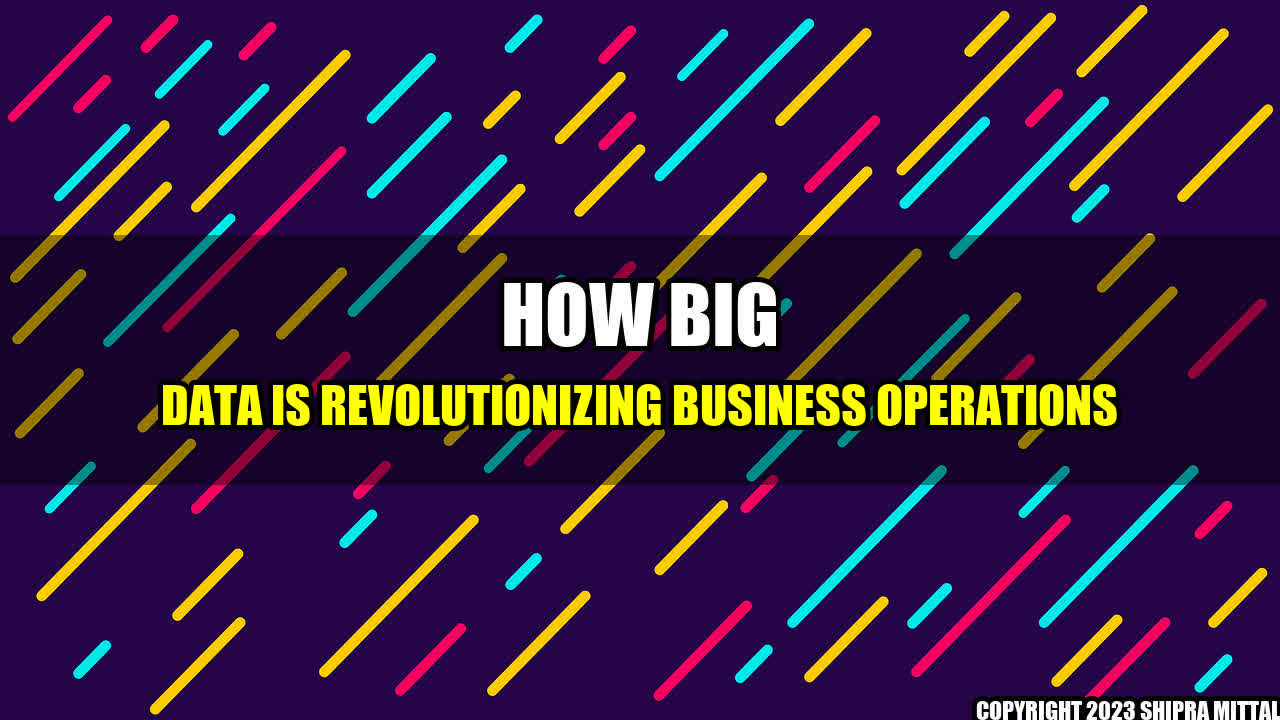
The concept of big data has been around for a while now, but it has gained more attention and significance in the recent past. The amount of data generated each day has exploded, and the trend is expected to continue. The rise in data volumes, velocity, variety, and veracity has resulted in several challenges, but it has also opened up opportunities for businesses that can leverage the power of data.
To understand how big data is transforming business operations, let's take a look at an interesting story:
In 2012, Target, the retail giant, became a topic of discussion after it was revealed that it was able to identify a teenage girl's pregnancy before her father did. How? Target's data analysts studied the girl's purchase history and identified patterns that suggested she was probably pregnant. They then sent her coupons for baby products, which her father received and was surprised to see, as he did not know about his daughter's pregnancy. While this incident sparked a privacy debate, it also highlighted the potential of big data to reveal insights and patterns that were previously hidden.
This is just one example of how big data is being used to gain insights and make informed decisions. Several industries, including healthcare, finance, retail, and manufacturing, are using big data analytics to drive innovation and stay ahead of the curve.
Real-Life Examples of Big Data in Action
Let's take a look at some real-life examples of how big data is being used by some of the major companies:
- Amazon: Amazon uses big data to personalize recommendations for its customers based on their browsing and purchase history. This has helped the company increase customer satisfaction and sales.
- Walmart: Walmart uses big data to optimize its supply chain and inventory management. This has resulted in reduced wastage and increased efficiency.
- GE: GE uses big data to monitor the performance of its machines and predict maintenance issues before they occur. This has helped the company reduce downtime and increase productivity.
- IBM: IBM uses big data to improve its marketing campaigns and customer engagement. This has resulted in higher conversion rates and better ROI.
- Nike: Nike uses big data to customize its products and improve the overall customer experience. This has helped the company increase brand loyalty and sales.
Conclusion
Big data has become an integral part of the business world, and its importance will only increase in the coming years. The ability to analyze and make sense of large volumes of data has given businesses a competitive edge and helped them make better decisions. However, it is important to remember that big data is not a magic wand that can solve all problems. It requires skilled professionals and a strategic approach to get the most out of it.
In summary, some critical comments on big data are:
- Big data is not a silver bullet solution. It requires proper planning and execution to deliver results.
- Data privacy and security are major concerns that need to be addressed.
- The quality of data is crucial. Garbage in, garbage out.

Akash Mittal Tech Article
Share on Twitter Share on LinkedIn